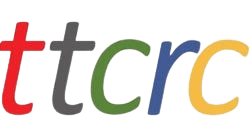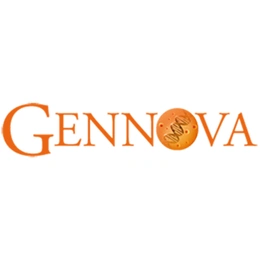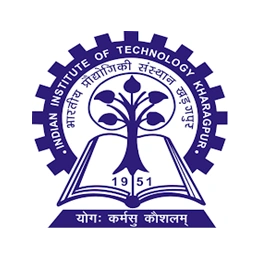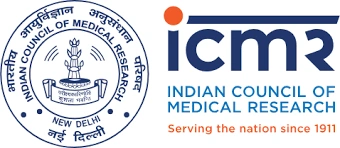Immunostained gallbladder organoid. Microscope: Stellaris 5 Lightning mode (Leica Microsystems)
- Nucleus
- Membrane glycoproteins
- Beta-catenin
- Cytokeratin 19
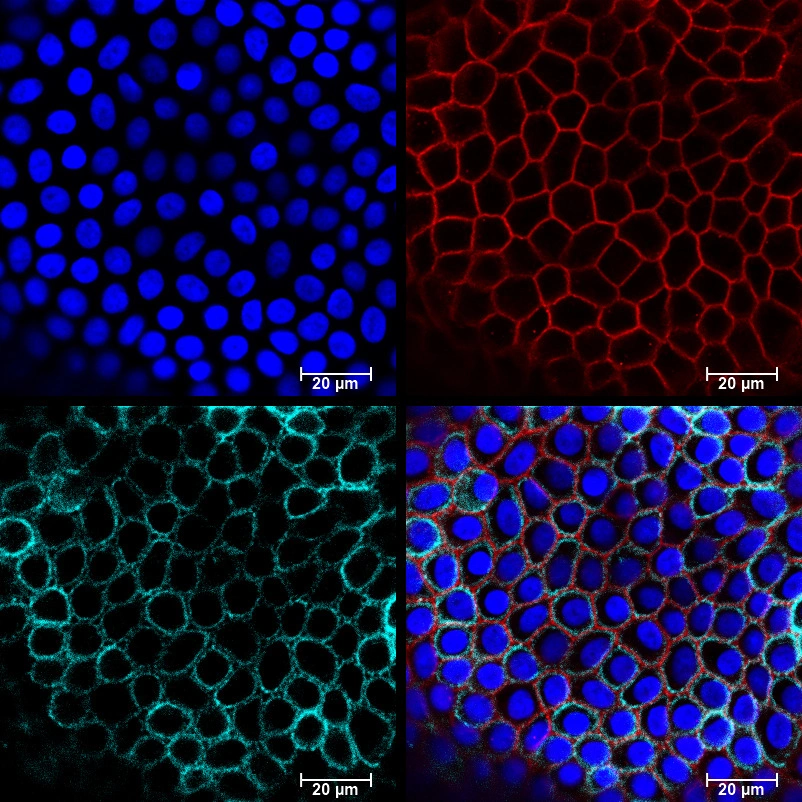
research summary
Despite the availability of modern diagnostic techniques and plethora of treatment options, the therapeutic outcome in patients suffering from different cancers is still not satisfactory. One of the key reasons for this sub-optimal outcome is heterogeneity, both at the genetic and epigenetic level, resulting in widely varied therapeutic responses between individual patients. To address this, it is essential that we adopt an individualised approach in studying cancer.
Patient Derived Organoid (PDO) models are relatively new type of 3D tissue culture system that recapitulate the key structural, functional and molecular aspects of the patient organs more closely than their 2D cell line counterparts. At the same time, these personalised ex vivo models are amenable for high throughput studies unlike the xenograft animal models.
Our group is currently invested in developing and exploiting PDO models of solid tumours to understand disease biology, identify alternative therapeutic targets and establish drug response profiling (DRP) platform with the aim of providing personalised treatment for cancer patients.
Note: Academic or industry groups who want to collaborate or partner with us are always welcome to discuss the possibilities. "Alone we can do so little; together we can do so much." – Helen Keller

Current Projects
Gallbladder Cancer (GBC) study
-
Developing a living PDO biobank of GBC and other gallbladder diseases.
-
Understanding GBC pathogenesis using molecular and biochemical characterisations of clinical samples and PDO models.
-
Find alternative therapeutic approaches.
Breast Cancer (BRC) study
-
Developing PDO models from HER2-enriched and triple-negative breast cancer biopsy tissues.
-
Establishing DRP platform using PDOs to predict treatment response in BRC patients.
Biomaterial study
-
Testing synthetic tuneable biocompatible hydrogels as an alternative to conventional murine sarcoma derived matrix to grow PDOs for drug assays.
Meet the Team
News
-
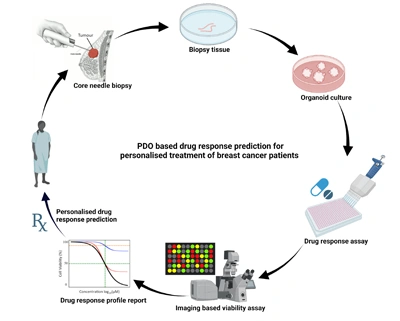
ICMR funded new project initiated in March, 2024. Project: Drug response profiling of PDO models to design personalised chemotherapy for breast cancer patients.
PI (non-clinical): Dr Dwijit GuhaSarkar;
PI: (clinical): Dr Sanjit Kr Agrawal.
-
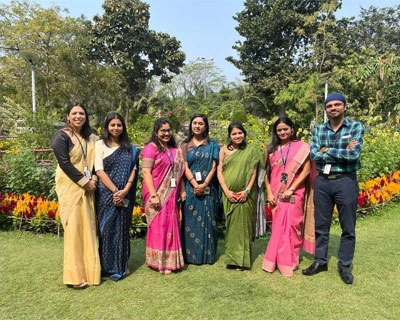
Dwijit delivering an invited talk at the GI-HPB surgery CME2024 – November, 2024
-
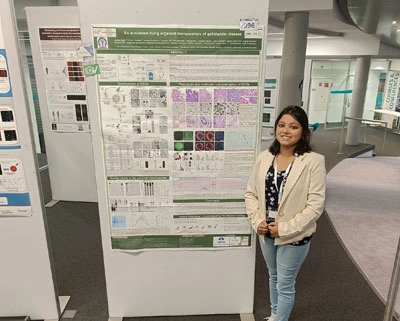
SOLi3D team attending the IACR 44th Annual Meeting at Biswa Bangla Convention Centre, Kolkata- January, 2025
-
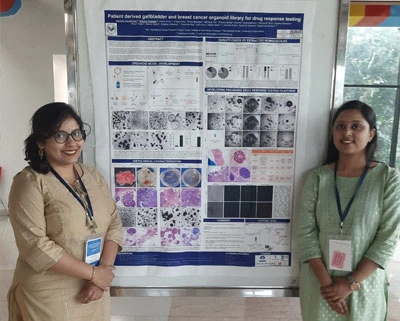
Ankita presenting poster at IACR conference, Kolkata -January, 2025
-
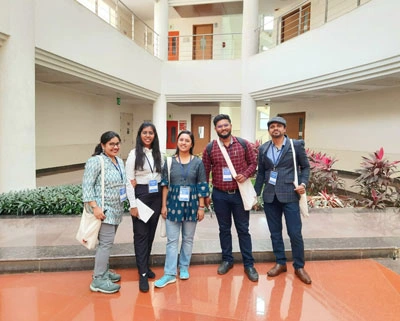
Payel and Nandita presenting a poster at the EMBO conference, Kolkata – February, 2025
-
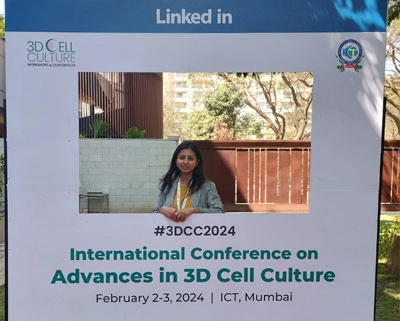
Prof Oskar Haas visiting Ankita’s poster at EMBO conference, Kolkata – February, 2025
-
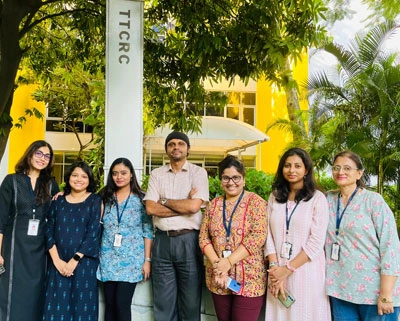
Dwijit delivering an invited talk at the EMBO conference, Kolkata- February, 2025
-
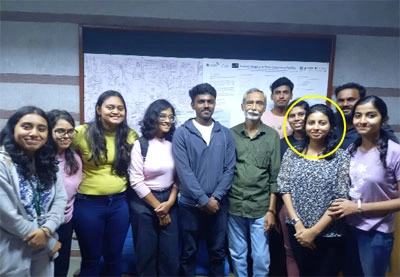
SOLi3D team with Prof. Vaskar Saha, founder director of TTCRC at the EMBO conference, Kolkata- February, 2025
-

SOLi3D team at the cruise party on the river Ganges – February, 2025
